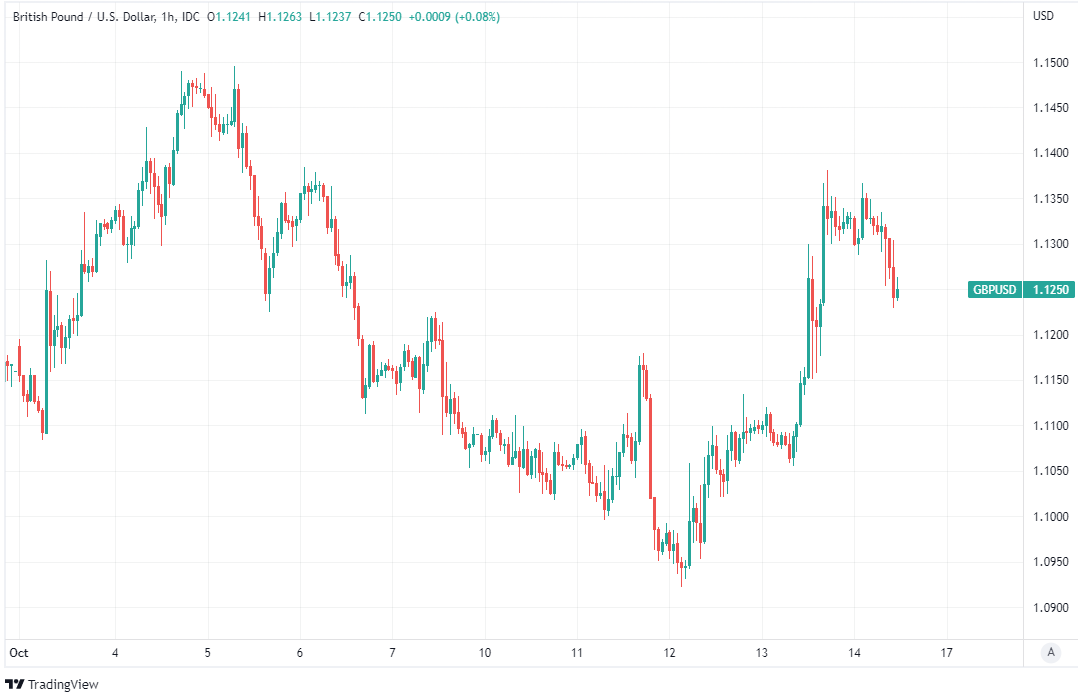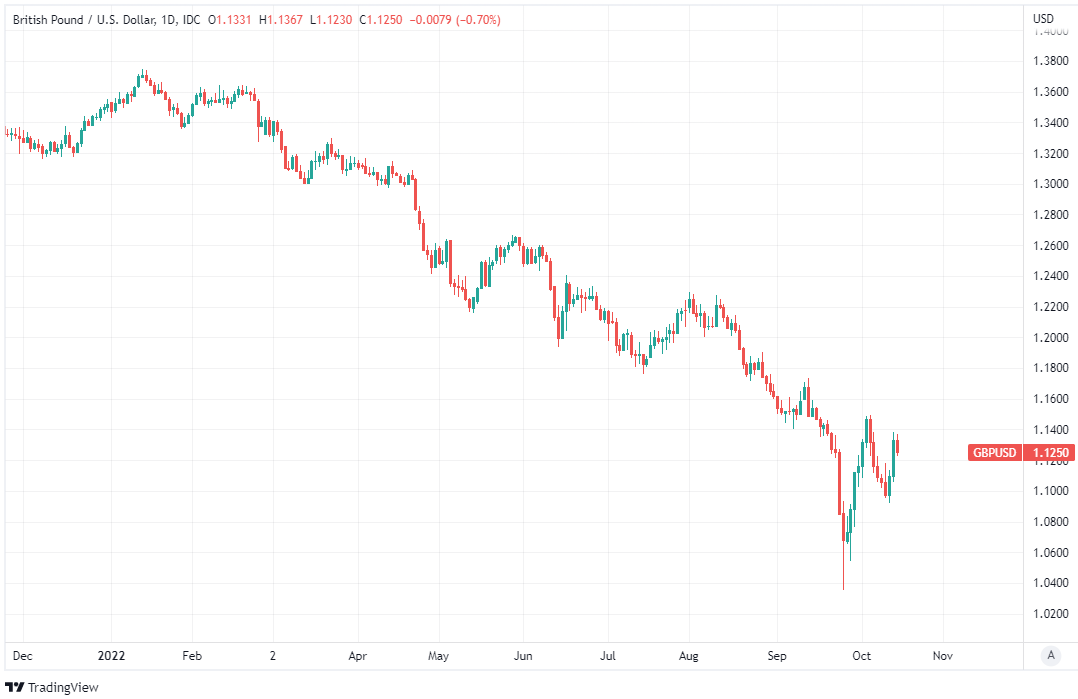GBP/USD Rally Squeezes Sellers but Many Say Sterling's Outlook Still Bearish
- Written by: James Skinner
"Even if the UK government were to perform a complete U-turn on its pro-growth agenda and add a windfall tax on low-carbon energy producers to fund some of its cost-of-living measures, however, this won’t change our negative outlook on the GBP," - Credit Agricole.

Image © Adobe Images
This week's Pound to Dollar exchange rate rally has squeezed sellers of Sterling out of the market but some including the FX strategy team at TD Securities intend to look for fresh opportunities to sell the Pound in the days and weeks ahead whatever the weather in relation to government spending plans.
Sterling rose strongly against many currencies this week and most notably so during the Thursday session when there was widespread media and market speculation suggesting the government could be about to scale back some of the spending commitments announced in September's budget-like statement.
This speculation persisted on Friday and although it has succeeded in squeezing some sellers of Sterling out of the market for the time being it's a long way from clear that any changes to the government's fiscal priorities would be enough to generate a lasting recovery for the heavily sold currency.
"We are closing our short GBPUSD exposure, taking a loss of 1.95%. The change reflects the increasing likelihood of fiscal U-turn and the prospects of a large short squeeze in GBP," writes Mark McCormick, global head of FX strategy at TD Securities, in relation to an early October trade idea.
"The possible U-turn could represent a much larger share of the initial spending plan. In turn, our conviction levels are lower that GBPUSD will hit the initial target but will look for better entry levels to resell GBP," he said on Friday when abandoning a bet that GBP/USD would fall back to 1.04 up ahead.
 Above: Pound to Dollar rate shown at hourly intervals.
Above: Pound to Dollar rate shown at hourly intervals.
GBP to USD Transfer Savings Calculator
How much are you sending from pounds to dollars?
Your potential USD savings on this GBP transfer:
$1,702
By using specialist providers vs high street banks
September's budget-like announcement was followed by heavy losses for Sterling and UK government bonds while also eliciting criticism from analysts and some international institutions, hence market interest in reports suggesting that parts of the budget may now be jettisoned.
But abandoning the budget plans will not help the economy and nor will it do anything about the strong Dollar that has driven the bulk of losses in GBP/USD this year, which are just two of the various reasons for why many analysts intend to maintain bearish outlooks for the Pound whatever the government decides.
"Even if the UK government were to perform a complete U-turn on its pro-growth agenda and add a windfall tax on low-carbon energy producers to fund some of its cost-of-living measures, however, this won’t change our negative outlook on the GBP," says Valentin Marinov, head of FX strategy at Credit Agricole CIB.
"The GBP remains the worst G10 currency according to our FX ranking based on drivers like relative growth outlook, external imbalances, real rates and yields among others," Marinov and colleagues wrote in a Friday market commentary.
Much ink has been spilt over the September budget with many often citing the financial market response to it as reason for the government to rethink its policies but critics often overlook that the Pound to Dollar rate had fallen by almost 20% for the year before the new government came into office.
 Above: Pound to Dollar rate shown at 4-hour intervals.
Above: Pound to Dollar rate shown at 4-hour intervals.
GBP to USD Transfer Savings Calculator
How much are you sending from pounds to dollars?
Your potential USD savings on this GBP transfer:
$1,702
By using specialist providers vs high street banks
"I can't see budget u-turns making a material difference for FX from here," writes Jordan Rochester, a G10 FX strategist at Nomura, in a Friday note.
"In our opinion, the main reason why GBP should continue to fall is declining global growth expectations, risk sentiment on the back foot and the UK's significant current account deficit over winter with the risks of energy blackouts," he had said previously on Wednesday.
Rochester and colleagues have been sellers of the Pound to Dollar rate for much of the year so far having initially began to bet against it as Russia's military crossed the border into Ukraine on February 24, a time when Sterling was trading up at 1.3460 against the greenback.
"As stated here before, foreign investors are the second largest holders of Gilts after the BoE and with a gaping twin deficit to GDP of between 10% - 15% of GDP, GBP gains are set to peter out," says Derek Halpenny, head of research, global markets EMEA and international securities at MUFG.
The squeeze of shorts that likely took place in recent days, means GBP is now the 3rd best performing G10 currency vs USD since the end of August. We don’t think that makes fundamental sense," Halpenny and colleagues said on Friday.
 Above: Pound to Dollar rate shown at daily intervals.
Above: Pound to Dollar rate shown at daily intervals.




